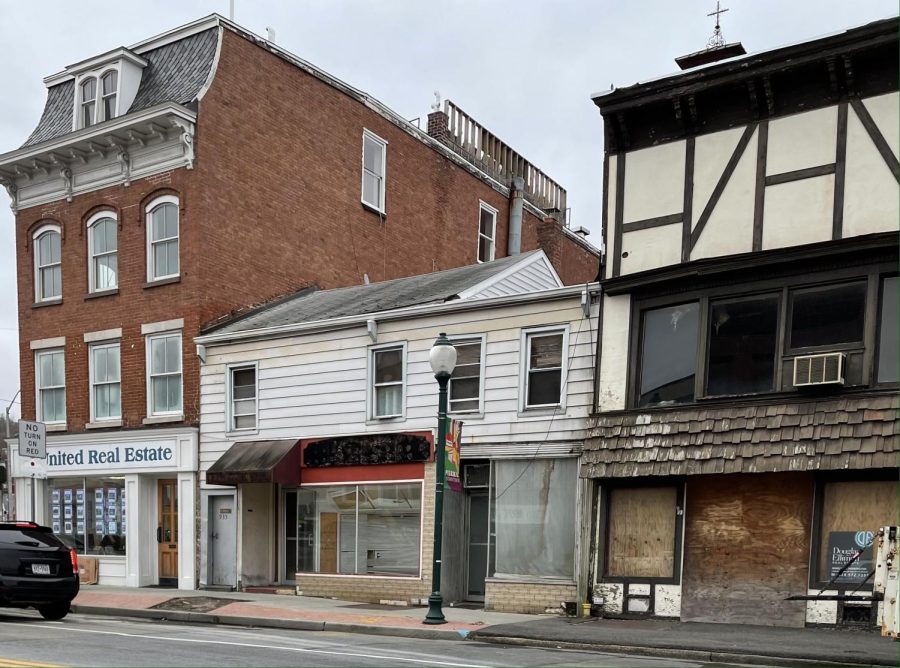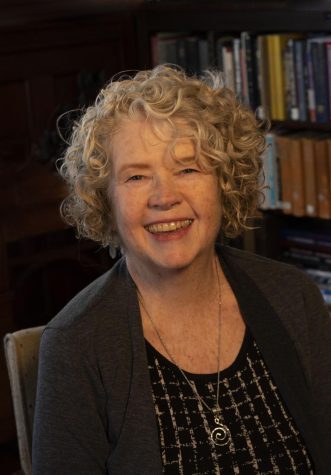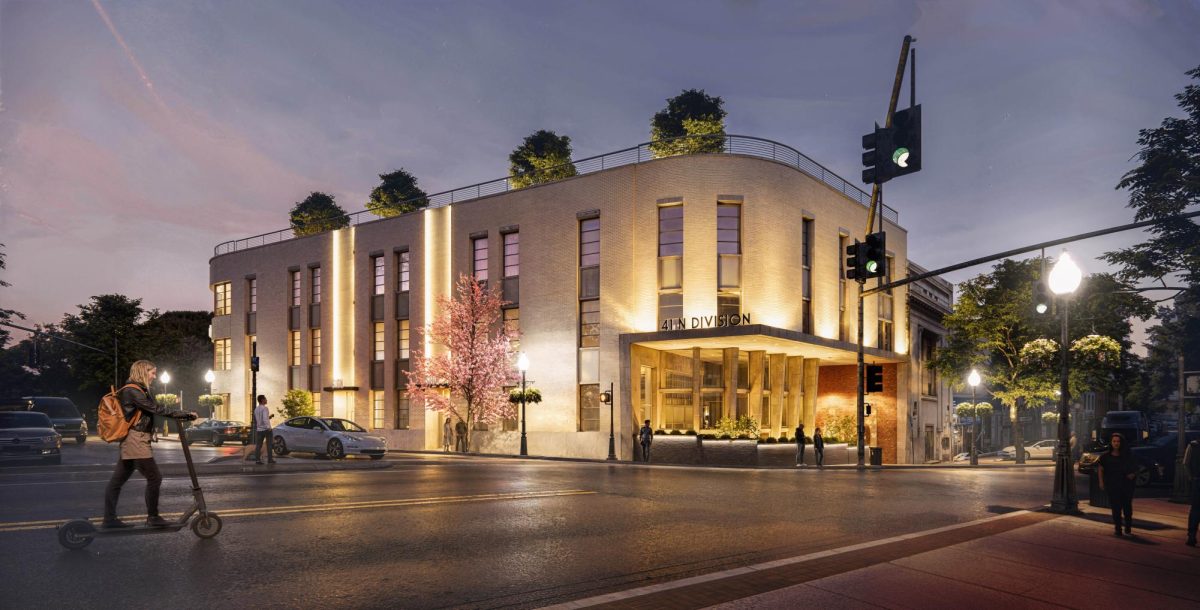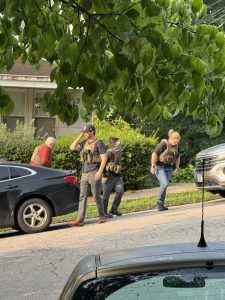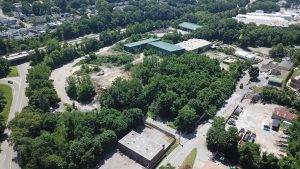‘Emporium’ pitched for empty South Street buildings
City’s economic developer proposes a retail incubator featuring local products
The buildings next to United Real Estate once housed Modern Bake Shop, Russ’ Wash ‘n Wear and The Chocolate Tree. They’ve been vacant for decades.
April 6, 2023
The successful securing of funding for a kitchen incubator at a former firehouse on Washington Street led Matt Rudikoff, the city’s economic development officer, to pitch a ‘Retail Incubator Emporium’ for three blighted storefronts on South Street to the Common Council during Monday’s work session.
The storefronts at 929-933 South Street, near the intersection of South Division Street, have been an eyesore on an otherwise busy downtown block in. Once the location of Modern Bakery, Russ’ Wash and Wear, and The Chocolate Tree, the buildings have been empty for nearly two decades, and images of them featured prominently in the city’s application to the state for a $10 million Downtown Revitalization grant in 2019.
Before Rudikoff was finished with his presentation, Mayor Vivian McKenzie pointed out that the key difference between the Kitchen Incubator and the Retail Emporium proposal lies in the ownership of the buildings. The former firehouse is owned by the city, while the three buildings are private property. McKenzie said her phone was ‘blowing up’ with comments from residents watching the meeting virtually, and she wanted Rudikoff to be aware of the distinction between city owned and privately owned property.
Rudikoff explained that he was aware of the distinction, and noted how the building’s owner, who is a developer, recently purchased the buildings. “The new owner is active in a local church and has a longstanding relationship with community institutions,” said Rudikoff. If the city agrees to this proposal, the new owner would be willing to sign a letter of intent to lease the properties to the city’s Facilities Development Corporation (FDC), a not-for-profit organization created in 2005.
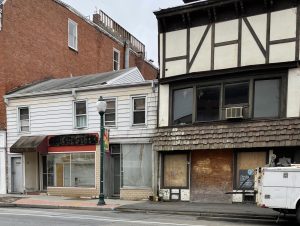
The Peekskill FDC, which is independent of the Peekskill Industrial Development Agency, was created as a public entity, “a supporting organization to reduce unemployment, promote and provide additional and maximum employment, create and maintain job opportunities and lessen the burden of government,” according to the city’s website. Two members of the PFDC, Debra Post and Rohan de Freitas, who are also members of Peekskill Industrial Development Agency, attended the meeting on Monday and spoke to the council in support of the proposal.
“I think we should see if it has legs and see where we can take it because it’s an opportunity,” said Post. deFreitas agreed, adding that there is always a challenge to finding training opportunities for employment.
The vision Rudikoff outlined focused on creating the Emporium as a retail incubator for locally produced products, some from the kitchen incubator businesses, and others from local artists. An additional line of products offered for sale in the Emporium would be associated with the African American history of this area. The beauty of the incubator, said Rudikoff, is the opportunity it affords creators to ascertain the market viability of their products. He pointed to a similar retail incubator in a community outside Chicago.
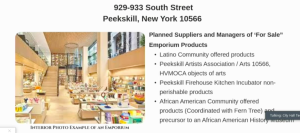
“We control how this happens,” explained Rudikoff, noting that the new owner is willing to sign a letter of intent with the PFDC to see if there’s grant funding to make the project happen. A crucial aspect of receiving grant funding is the private/public partnership. Rudikoff noted the extra real estate that is behind the three buildings, an alley that is part of the parcel, would make the project have an attractive outdoor space to be utilized for performances and events.
The next steps, he said, would be allocating funding from the PFDC (approximately $15,000) for a feasibility study and architectural drawings which would allow the project to seek funding for renovation and build out of the space which is nearly 7,000 square feet between the three buildings.
Councilman Dwight Douglas said he’d like to see some investment by the current owner to stabilize the buildings, adding “I believe that’s a reasonable request of the landlord.” Rudikoff replied saying that could be a provision of the letter of intent with the landlord. “This is a creative way to solve our complicated vacancies issue,” observed councilman Brian Fassett.


